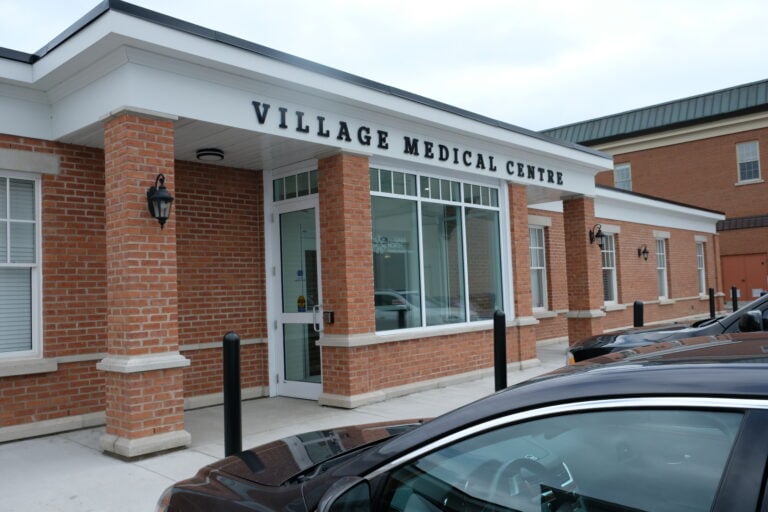Niagara-on-the-Lake’s downtown business community wants town council to act quickly in getting financial relief and a recovery plan in place for renters and owners on Queen Street.
Terri-Lynn Woodhouse, owner of One Earth and member of Heritage District Merchant Group (a group of 50 merchants in the historic district), gave a presentation to councillors Monday night, highlighting a group report on the impacts of COVID-19.
Among the key findings are that 50 per cent of renters are still paying full rent, despite some businesses seeing revenues of 50 per cent, to less than 5 per cent of what they would normally make.
Woodhouse asked for several issues to be addressed by the town to help the business community in Old Town, including that the town:
* Reconsider its decision to defer a heritage tax rebate program to 2021 and instead work on it immediately.
* Have municipal representatives meet with provincial leaders, including Premier Doug Ford, to present the town’s immediate, short-term and long-term recovery plan, ask for financial support and push to extend relief programs.
* Ask the province to change the way rent subsidies are handled, giving the money to the tenants first.
* Allow free parking on Queen Street or close parking and open the street for pedestrian traffic.
Woodhouse pointed out that NOTL’s historic district is a “very expensive place to do business.”
She said renters on Queen Street are paying between $100 and $200 per square foot, in comparison to the $25 per square foot national average, and $26.75 square foot average in Toronto.
She also noted there is no break in rent during the low season from December to March, and store operators depend heavily on the high season to make it through the winter.
“We as a group depend on our five-month high season sales to pay our operating expenses throughout the year,” the report said.
Merchants in the group are also paying extremely high property taxes, with 33 per cent paying between $20,000 and $30,000, 12 per cent paying $30,000 to $40,000, 6 per cent paying between $40,000 and $50,000, and 21 per cent paying more than $50,000 per year, Woodhouse said.
She said that’s tough to manage when revenues are so low — and the report estimates 2020 sales for the entire season will be less than the typical low season.
“Many of the typical revenue drivers of our businesses were eliminated for the foreseeable future. Our costs have stayed the same. Any reserves we have are used very quickly when something like a pandemic hits, with our high cost of rent and taxes,” Woodhouse said.
The report also asked business owners if they are taking advantage of government subsidies like CERB (Canada Emergency Response Benefit), CEBA (Canada Emergency Business Account interest-free loans) and CECRA (Canada Emergency Commercial Rent Assistance).
In all, about 90 per cent of downtown businesses received the $40,000 business loan from the government. That means those merchants now have more debt, she pointed out, despite the money helping in the short term.
The report also said 46.88 per cent of the merchant group is not taking a pay cheque from their business and instead are on CERB and 50 per cent of the landlords in the Heritage District did not participate in CECRA, meaning tenants were legally bound to pay all of their rent and taxes.
It said 34.38 per cent of merchants in the group are paying 25 per cent of their rent and taxes due to CECRA and that 59.38 per cent of merchants are paying their staff 25 per cent as the government is contributing the remaining 75 per cent.
Over 200 staff members have been laid off or lost their job.
Woodhouse said the group is worried stores on Queen Street are going to go out of business, leaving the street vacant and for lease.
She said there are already seven vacant storefronts and another 10 businesses still haven’t reopened.
Among the businesses that are open, many are choosing to operate only Friday, Saturday and Sunday due to the “extremely low volume of persons visiting the Historic District in Niagara-on-the-Lake.”
The report said downtown merchants have been asking the town for a recovery plan as well as a reopening plan, but that to date none have been received.
“When the province gave the green light for retail stores to reopen on May 11, they were left to do this on their own without any support from the town,” the report said.
It said a letter from the town that was hand-delivered under doors outlined the legal obligations each merchant had in upholding the new normal and what the legal ramifications would be if anything was not followed.
The report said more than 45 per cent of businesses also incurred more than $1,000 in reopening costs.
It added that all owners are worried about the about the viability of their businesses for the remainder of 2020 up until a recovery can be made, which could be as late as 2022 or 2023.
Some of the contributing factors are that all NOTL summer festivals have been postponed until at least 2021, the Shaw Festival is indefinitely on hold (until at least August, though most feel it will be longer), the U.S. border is closed until at least the end of July, likely to be extended due to escalating U.S. numbers, international borders are closed for the foreseeable future, the business conference market, which greatly helps in September and October, is being postponed, current federal government funding is ending, and restaurants likely will be able to open to 50 per cent of capacity, which is “not sustainable.”
One positive the report identified is that 65 per cent of business comes from Ontario, but questioned whether the town can retain those numbers with the “harsh closure and much media coverage surrounding it,” as well as that “all communities in Ontario are fighting for the same dollars and visitors.”
The report says about 33 per cent of visitors are international, with 25 per cent coming from the United States.
Kim Hughes, co-owner of Sunset Grill, who spoke with Woodhouse, said the issue is partly the property taxes.
“I think the issue we have here in Niagara-on-the-Lake is because the property taxes are so high based on the volume or the values, that's where we're running into trouble.”
She said her business is on the board of one of the regional chambers and “other towns don't have the issue that we have, because the tenants aren't paying nearly as much as we are.”
The merchant group also suggested the town consider free parking on Queen Street.
Lord Mayor Betty Disero asked if they had a total cost of what their ask would be to the town, pointing out that parking is a major revenue source for the town.
Parking generates “a couple million dollars. If we get the heritage tax rebate, that's $250,000. If we give a tax relief, that could be another $250,000. So we're looking at two and a half million which is 25 per cent tax increase,” Disero said.
The presenters didn’t have a dollar figure worked out but said they would get one.
The group was clear it needs immediate assistance.
“None of us have a magic wand that's gonna switch this. But we have to be able to count on our federal politicians or provincial politicians or regional politicians to make sure that they know what's happening and that we definitely do need help,” Woodhouse said.
“We don't believe that this is the time for consultants, referrals or deferrals. The businesses that are doing business on Queen Street, these are people's livelihoods. These are people that have been in business for five years, 10 years, 20 years, 30 years. They're very, very invested. And any decisions that we make as a group really does play with people's lives.”
The business group's report was referred to the lord mayor and the CAO for a response in consultation with other members of council.
Disero said she'll be finalizing the report for council and including costs.
Regarding the heritage tax rebate, Disero said it needs to benefit all of the town, not just Queen Street.
“I want to finalize the report from myself to council that basically says, here's what they wanted. I've talked to them. Here's what it might cost us to do this. And here's what it would cost if we did something that was fair and equitable across the whole town.”
She said, “It can't just be a relief to a small number. Because that, in my opinion, is contrary to the Municipal Act.”
“I feel for them, I want to try to help them as best we can.”
She said she will be looking to other municipalities to see how they're handling things, but that she doesn't want to stick taxpayers with the bill.
“If we are going to do the heritage tax rebate, I want to find out a way that we can fund it without going to the rest of the taxpayers to pay for it, because everybody's suffering, people have been out of work,” she said.
The group's report concludes by saying: “We don’t want to see the prettiest town in Canada, up for sale.”











